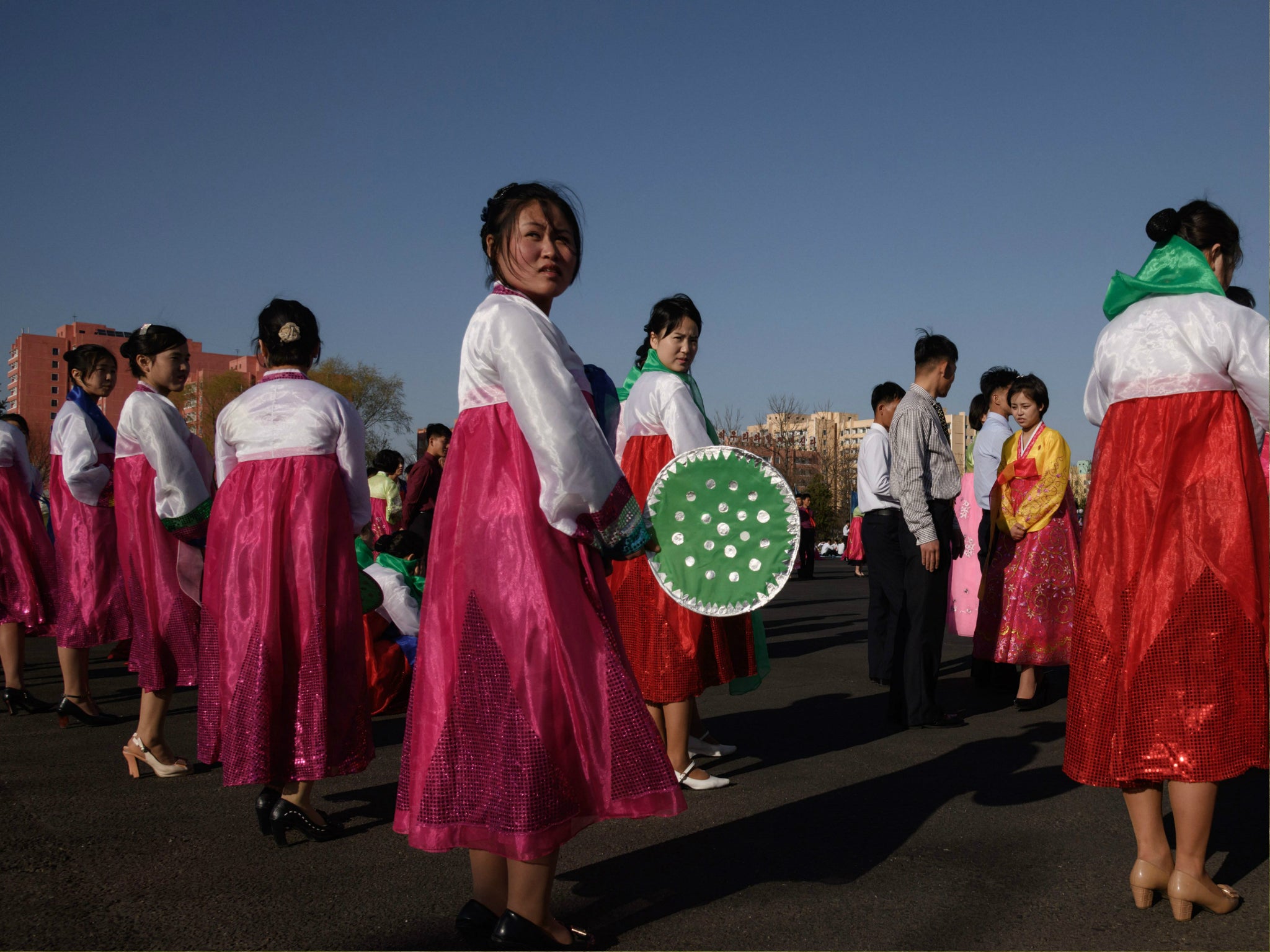United Nations own sanctions hinder its humanitarian aid efforts in North Korea
Of 10 million people that need help, the UN says it could only reach 660,000

The United Nations was only able to help a fraction of the impoverished North Koreans it had planned to as money was scarce in the face of rising tensions between the west and Pyongyang over nuclear weapons.
The UN’s own Security Council sanctions were part of what hampered humanitarian aid supplies and financial transfers making their way into the country, UN resident coordinator Tapan Mishra told AFP News Agency. The UN was only able to solicit $31m in member country contributions of the required $114m.
Out of that 10.3 million people that Mr Mishra said need help, the UN targeted helping about four million with the decreased amount of aid money they had received. They reached approximately 660,000 people - or 15 per cent - of them.
“Undernutrition continues to be a serious concern” with more than 25 per cent of children are stunted due to malnutrition, Mr Mishra said. “People [are] struggling to have basic access to facilities including health, a large proportion of the population lives without a reliable source of safe drinking water, almost a quarter without basic sanitary facilities,” he said, describing living conditions in the isolated nation.
As AFP reported: “A higher proportion, two million out of a targeted 2.5 million, received nutritional support, which is cheaper to provide”.
This year the UN is seeking approximately $111m in humanitarian aid for North Koreans, saying that even in times of war or conflict the needs of civilians should not be forgotten.
The sanctions imposed were intended to target oil, gas, textile, and seafood imports and exports of North Korea while attempting to stem some of the trade taking place between the regime of North Korean leader Kim Jong-un and countries like Russia, China, and Vietnam among others in southeast Asia.
The sanctions on the Foreign Trade Bank have been keeping North Korea "from honouring its obligation as a UN member state by hindering even normal activities such as payment of the UN contribution,” the North Korean mission said in a statement in February. That same month, US President Donald Trump said the “largest ever” round of sanctions had been placed by the US on 50 North Korean companies, shipping vessels, and trade-related businesses.
North Korea Military Parade
Show all 6The latest UN sanctions impose caps on North Korea’s oil exports, bans all textile exports, and no country is allowed to issue work permits to those holding North Korean passports. Countries will also be allowed to freeze assets of cargo ships if they refuse to undergo inspections. Originally – before negotiations with China and Russia – the US had wanted to freeze all of Mr Kim’s assets, impose a travel ban on him, and have a total ban on oil imports.
The US and North Korea are set to meet at a location to be determined in May but there have been no talks of concessions being made on sanctions until Mr Kim decides to stop developing his country’s nuclear weapons programme.
Subscribe to Independent Premium to bookmark this article
Want to bookmark your favourite articles and stories to read or reference later? Start your Independent Premium subscription today.

Join our commenting forum
Join thought-provoking conversations, follow other Independent readers and see their replies